Written by Joel Alderfer on January 19, 2022
In early 2020, Nan Weber Burch of Skippack, PA donated a significant group of related fraktur that had descended from her maternal grandmother’s ancestry in the Lower Salford-Skippack area. These include pieces from the Bergey, Tyson, Johnson, and Kulp families.
The oldest piece is a notenbuchlein, or manuscript hymn booklet, with fraktur-style bookplate, dated May 2, 1798, and made by Schoolmaster Andreas Kolb for student Elizabeth Bergey of Lower Salford Township. She was the daughter of Christian & Mary Bergey and
Continue Reading
Written by Forrest Moyer on April 15, 2020
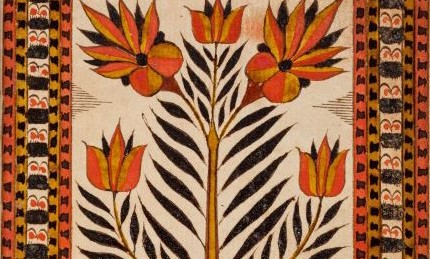
Schoolmasters who made fraktur for their students rarely signed their art. There are numerous artists who have yet to be identified or may never be known; but occasionally, evidence appears which allows historians and collectors to begin attributing artwork to a particular person.
This article, first published in the MHEP Newsletter January 1995 with the title “David Kulp, His Hand & Pen: The ‘Brown Leaf Artist’ Identified?”, describes a process of identification that may be considered typical. In this case, the
Continue Reading
Written by Forrest Moyer on March 18, 2020
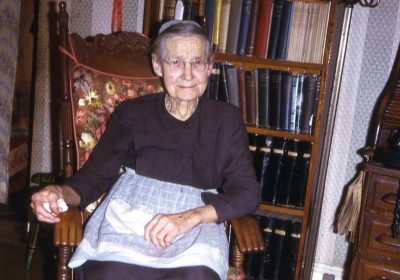
This article was written by Joel Alderfer for the MHEP Newsletter in 1994, based on research done for the exhibit When This You See, Remember Me: The Experience of Mennonite Women.
Hanna Rittenhouse (1880-1977) was born in Towamencin Township, Montgomery County, the youngest child of Jacob K. Rittenhouse (1838-1917), a township school director, and Elizabeth D. Clemmer Rittenhouse (1840-1922). She enjoyed her grade-school education and graduated from the eighth grade in 1895, for which she wrote the class history. About a
Continue Reading
Written by Forrest Moyer on August 22, 2019
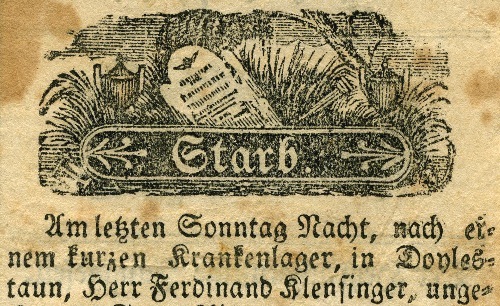
In January 2018, the MHC received a surprise package in the mail from Lois Beun Callaghan of Santa Fe, NM, a descendant of John Meyer/Moyer (1799-1877) of Skippack Township. It contained several 19th century German newspapers with Meyer’s name on them — Der Morgenstern (Doylestown, PA), Der Neutralist (Skippack, PA), and Montgomery County Presse (Lansdale, PA) — and a separate file of hundreds of obituaries (and some marriage notices) clipped from these papers in the years 1844-1893. We’re thankful to
Continue Reading
Written by Forrest Moyer on October 4, 2018
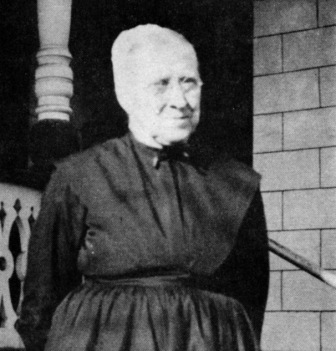
This article was first published in the MHEP Newsletter in June 1978. Photos are from Willoughby Moyer’s booklet on the Bean family (1975), unless otherwise noted.
Introduction
Anna W. Kulp was born October 7, 1865 near Harmony Square, later known as Creamery, in Skippack Township. Her parents were Isaac K. Kulp (1822-1892) and Susanna H. Williams (1823-1871). When she was six years old, her mother died, and young “Annie” went to live with Isaac K. Gottshall and his wife, Sarah B. Kulp,
Continue Reading
Written by Forrest Moyer on May 16, 2018
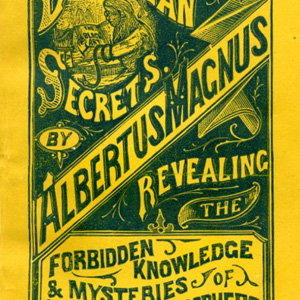
In February 1979, the MHEP Newsletter published notes from a talk by Mennonite pastor Gerald Studer on the topic of “powwowing”—In German, Braucherei—a combination of faith healing and folk medicine. This ancient practice brought by Pennsylvania Germans from Europe has been preserved in pockets of the American countryside to the present day. Opinions have varied in the Pa. German community about the effectiveness and propriety of powwowing. Individuals from all religious groups—Lutheran, Reformed, Mennonite, Brethren, Evangelical, etc.—made use of powwow
Continue Reading
Written by Forrest Moyer on March 5, 2018
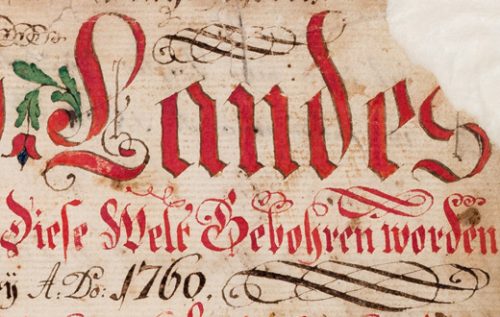
This series of posts highlights families descended from 18th-century Mennonite immigrants to eastern Pennsylvania, in connection with the MHC’s exhibit Opportunity & Conscience: Mennonite Immigration to Pennsylvania, on display through March 31, 2018. The stories reflect the enrichment brought to communities over centuries by the descendants of immigrants.
E-I-E-I-?
Old Abe Landis had a farm, E-I-E-I-O. How should he spell his name, with an “e” or an “i”?
The most common spelling of the name today is Landis, but not so in years
Continue Reading
Written by Forrest Moyer on January 26, 2018
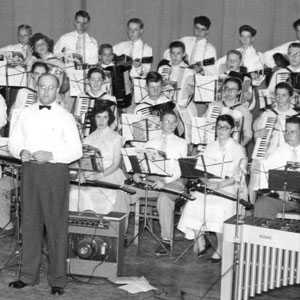
This series of posts highlights families descended from 18th-century Mennonite immigrants to eastern Pennsylvania, in connection with the MHC’s exhibit Opportunity & Conscience: Mennonite Immigration to Pennsylvania, on display through March 31, 2018. The stories reflect the enrichment brought to communities over centuries by the descendants of immigrants.
Immigrant Bishop Felte
There were several Mennonite men named Clemmer, presumably brothers, who settled in Pennsylvania in the early 1700s – Jacob, Christian, Henry and John (Hans), and possibly John Jacob – along with
Continue Reading
Written by Forrest Moyer on August 24, 2017

The Mennonite Heritage Center works to tell not only the Mennonite story, but the local Brethren story as well. Recently the MHC received a donation of one of the benches that was used in the Indian Creek Church of the Brethren from 1906 to 1953.
The church benches during this time had an interesting convertible design in order to accommodate love feast, the ritual “agape meal” that was representative of the Last Supper and was observed by the Brethren in combination
Continue Reading
Written by Joel Alderfer on August 17, 2017
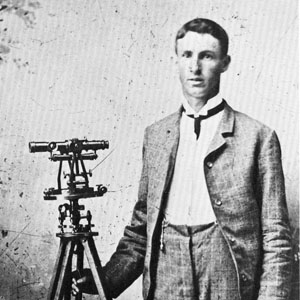
This series of posts highlights families descended from 18th-century Mennonite immigrants to eastern Pennsylvania, in connection with the MHC’s exhibit Opportunity & Conscience: Mennonite Immigration to Pennsylvania, on display through March 31, 2018. The stories reflect the enrichment brought to communities over centuries by the descendants of immigrants.
The Alderfer name is one of those unique to the Mennonite communities of Montgomery and Bucks Counties. The name was not found in other Mennonite settlements, except through later migration and intermarriage. However,
Continue Reading









